Meili's Improbable Path from the Ivy League
Meili's Improbable Path from the Ivy League
by Christina Pfenning CraigThe 2016 Rio Olympic Games were presented as a Phelps-a-palooza and a Ledecky love-fest on American television. Living legends, t
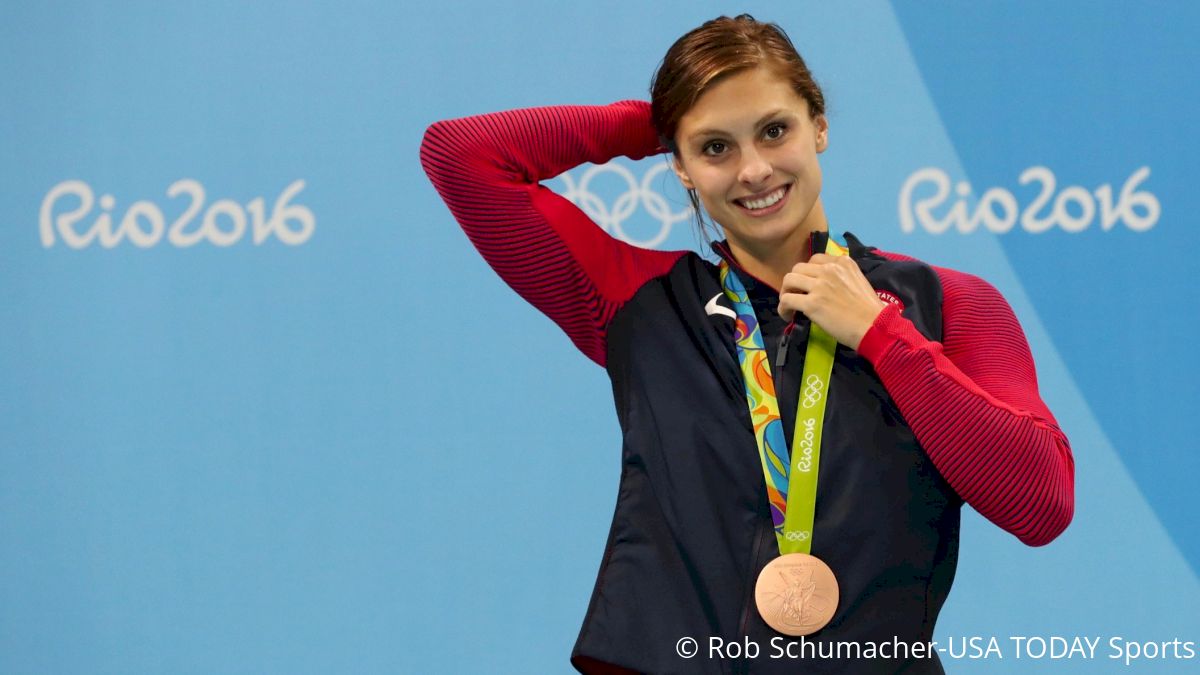
by Christina Pfenning Craig
The 2016 Rio Olympic Games were presented as a Phelps-a-palooza and a Ledecky love-fest on American television. Living legends, they certainly deserve a great deal of the attention. But what about the other exceptional swimmers and their stories?
Every Olympian brings a backstory along with them to the Games. FloSwimming dives into a few overlooked Olympic storylines that didn't make it to prime time.
Gold medalist Lilly King's finger-wag-seen-round-the-world and silver medalist Yulia Efimova's unfortunate history with doping dominated the women's 100 breast. But did you know that the bronze medalist, Katie Meili, is a graduate of Columbia University, an Ivy League school without a robust athletic reputation or athletic scholarships? How did Meili, who had never competed internationally until 2015, make her way to an Olympic podium?
"When I started college, I was a good swimmer, but I wasn't amazing," says Meili. "By sophomore year I won an event at the Ivy League championships and I went to NCAAs. I loved how competitive NCAAs was, competing against the best swimmers in the world. I started setting higher goals for myself."
There's no hand-holding or designated study sessions or any special accommodations made for athletes at Columbia, which was fine for Meili who wanted to balance rigorous academics with swimming. Yet, she didn't anticipate that some professors would practically penalize her for being an athlete.
"A professor once gave me a zero on an exam that I had to miss to be at the Ivy League Championships," Meili says. "She wouldn't budge and allow me to take it at a later date. Sometimes it felt like professors gave me a harder time because I was a swimmer. So, in class at Columbia, I wasn't an athlete; I was just a student. But I appreciated that no one held my hand at Columbia. It made me into a more independent and resourceful person."
Meili continued to improve throughout college, taking third in the 100 breast at NCAAs her senior year, but her Olympic dreams were still just that--hopeful figments of her imagination.
"I was supposed to start working at a law firm in New York City after graduating from college, but my Columbia coaches, Diana Caskey and Michael Sabala, sat me down and encouraged me to continue swimming full-time," Meili says. "They told me that, if I could train full time, then I could make the Olympics in 2016. I remember laughing hysterically at that."
Then serendipity struck at what was then called the UltraSwim competition in Charlotte, North Carolina. Sabala set up a meeting with David Marsh, head coach of SwimMAC Team Elite, who extended an open invitation for Meili to train with his team. Then a local Charlotte family offered her a place to stay and the father of another Columbia swimmer set her up with a job in the city.
"I really laughed when I said I was moving to Charlotte to swim professionally," says Meili.
Things progressed quickly from there. At the 2016 Olympic Trials and Meili found herself seeded second in the 100 breast.
"Olympic Trials was the scariest meet I've even been to," says Meili. "I was seeded second going into the meet, but I knew there were so many other great breaststrokers in the country--nothing was guaranteed. I had a hard time relaxing and not thinking about the race. It was that scary type of nervous, not the good type of nervous. But as soon as I made the team, I felt a massive release. I woke up the day after making the team feeling like I had the flu because I had just released three years of stress in one moment."
On the contrary, the actual Olympic Games was a breezy and fun experience.
"Olympic Trials is held in a windowless convention center, so it's kind of dark and it feels like you are part of a theater performance. The Olympic Games is open and airy. Once you're on the team you can relax a little more. The team is so bonded and so together and lighthearted and fun. It's also a huge honor to represent the USA. I was nervous at the Olympics, but I was also much more excited and ready to go."
Since Rio, Meili's been on the World Cup circuit, jet-setting around the world with the best swimmers on earth.
"I'm doing the full World Cup program. I'm leaving soon for the Middle Eastern cluster, which takes us to Beijing, China, Dubai, United Arab Emirates, and Doha, Qatar. I already competed in the European cluster," says Meili. "The World Cup meets are so much fun and chill, although there is a lot of money on the line. (Swim fast repeatedly and there's a chance to win $100,000.) Everyone travels together, so I've made great friends from all over the world. We're together for two weeks each time, so it's like international summer camp."
So, does Meili have her sights set on Tokyo in 2020?
"No, I'm ready to move on. I'll be taking the LSAT soon and then I'm going to apply to law schools," says Meili.
Hopefully she'll be filling out those law school applications with a bank account filled with a chunk of tuition money earned through the World Cup--in Berlin, Germany she won the 100 breast (SCM), breaking the American record in the process. Looks like that hilarious idea to pursue swimming full time resulted in a seriously amazing story.
The 2016 Rio Olympic Games were presented as a Phelps-a-palooza and a Ledecky love-fest on American television. Living legends, they certainly deserve a great deal of the attention. But what about the other exceptional swimmers and their stories?
Every Olympian brings a backstory along with them to the Games. FloSwimming dives into a few overlooked Olympic storylines that didn't make it to prime time.
Gold medalist Lilly King's finger-wag-seen-round-the-world and silver medalist Yulia Efimova's unfortunate history with doping dominated the women's 100 breast. But did you know that the bronze medalist, Katie Meili, is a graduate of Columbia University, an Ivy League school without a robust athletic reputation or athletic scholarships? How did Meili, who had never competed internationally until 2015, make her way to an Olympic podium?
"When I started college, I was a good swimmer, but I wasn't amazing," says Meili. "By sophomore year I won an event at the Ivy League championships and I went to NCAAs. I loved how competitive NCAAs was, competing against the best swimmers in the world. I started setting higher goals for myself."
There's no hand-holding or designated study sessions or any special accommodations made for athletes at Columbia, which was fine for Meili who wanted to balance rigorous academics with swimming. Yet, she didn't anticipate that some professors would practically penalize her for being an athlete.
"A professor once gave me a zero on an exam that I had to miss to be at the Ivy League Championships," Meili says. "She wouldn't budge and allow me to take it at a later date. Sometimes it felt like professors gave me a harder time because I was a swimmer. So, in class at Columbia, I wasn't an athlete; I was just a student. But I appreciated that no one held my hand at Columbia. It made me into a more independent and resourceful person."
Meili continued to improve throughout college, taking third in the 100 breast at NCAAs her senior year, but her Olympic dreams were still just that--hopeful figments of her imagination.
"I was supposed to start working at a law firm in New York City after graduating from college, but my Columbia coaches, Diana Caskey and Michael Sabala, sat me down and encouraged me to continue swimming full-time," Meili says. "They told me that, if I could train full time, then I could make the Olympics in 2016. I remember laughing hysterically at that."
Then serendipity struck at what was then called the UltraSwim competition in Charlotte, North Carolina. Sabala set up a meeting with David Marsh, head coach of SwimMAC Team Elite, who extended an open invitation for Meili to train with his team. Then a local Charlotte family offered her a place to stay and the father of another Columbia swimmer set her up with a job in the city.
"I really laughed when I said I was moving to Charlotte to swim professionally," says Meili.
Things progressed quickly from there. At the 2016 Olympic Trials and Meili found herself seeded second in the 100 breast.
"Olympic Trials was the scariest meet I've even been to," says Meili. "I was seeded second going into the meet, but I knew there were so many other great breaststrokers in the country--nothing was guaranteed. I had a hard time relaxing and not thinking about the race. It was that scary type of nervous, not the good type of nervous. But as soon as I made the team, I felt a massive release. I woke up the day after making the team feeling like I had the flu because I had just released three years of stress in one moment."
On the contrary, the actual Olympic Games was a breezy and fun experience.
"Olympic Trials is held in a windowless convention center, so it's kind of dark and it feels like you are part of a theater performance. The Olympic Games is open and airy. Once you're on the team you can relax a little more. The team is so bonded and so together and lighthearted and fun. It's also a huge honor to represent the USA. I was nervous at the Olympics, but I was also much more excited and ready to go."
Since Rio, Meili's been on the World Cup circuit, jet-setting around the world with the best swimmers on earth.
"I'm doing the full World Cup program. I'm leaving soon for the Middle Eastern cluster, which takes us to Beijing, China, Dubai, United Arab Emirates, and Doha, Qatar. I already competed in the European cluster," says Meili. "The World Cup meets are so much fun and chill, although there is a lot of money on the line. (Swim fast repeatedly and there's a chance to win $100,000.) Everyone travels together, so I've made great friends from all over the world. We're together for two weeks each time, so it's like international summer camp."
So, does Meili have her sights set on Tokyo in 2020?
"No, I'm ready to move on. I'll be taking the LSAT soon and then I'm going to apply to law schools," says Meili.
Hopefully she'll be filling out those law school applications with a bank account filled with a chunk of tuition money earned through the World Cup--in Berlin, Germany she won the 100 breast (SCM), breaking the American record in the process. Looks like that hilarious idea to pursue swimming full time resulted in a seriously amazing story.
Related Content
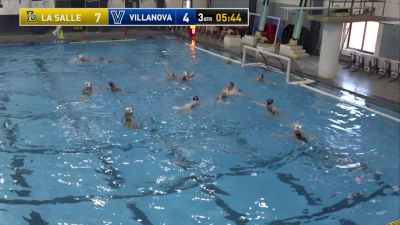 Replay: Le Salle vs Villanova - WWP - 2024 La Salle vs Villanova | Apr 7 @ 3 PM
Replay: Le Salle vs Villanova - WWP - 2024 La Salle vs Villanova | Apr 7 @ 3 PMApr 7, 2024
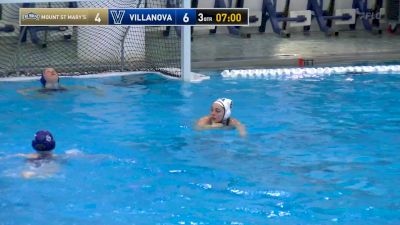 Replay: Mount St. Mary's vs Villanova - WWP - 2024 Mount St. Mary's vs Villanova | Apr 6 @ 7 PM
Replay: Mount St. Mary's vs Villanova - WWP - 2024 Mount St. Mary's vs Villanova | Apr 6 @ 7 PMApr 7, 2024
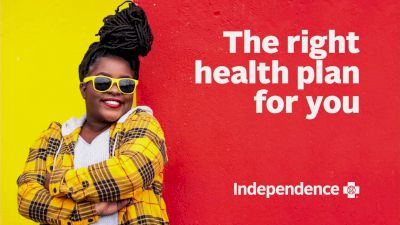 Replay: VMI vs Villanova - WWP - 2024 VMI vs Villanova | Apr 6 @ 11 AM
Replay: VMI vs Villanova - WWP - 2024 VMI vs Villanova | Apr 6 @ 11 AMApr 6, 2024
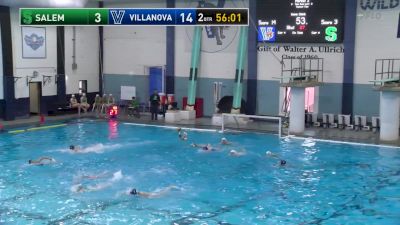 Replay: Salem University vs Villanova | Mar 9 @ 9 AM
Replay: Salem University vs Villanova | Mar 9 @ 9 AMMar 9, 2024
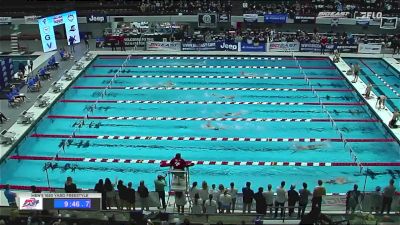 Replay: Big East Swimming Championship | Mar 2 @ 3 PM
Replay: Big East Swimming Championship | Mar 2 @ 3 PMMar 3, 2024
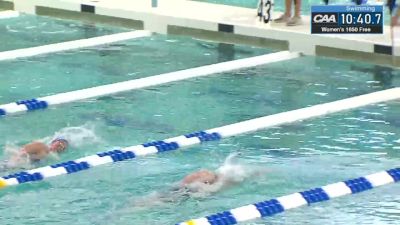 Replay: CAA Champs Prelims (AM) & Finals (PM) | Mar 2 @ 3 PM
Replay: CAA Champs Prelims (AM) & Finals (PM) | Mar 2 @ 3 PMMar 3, 2024
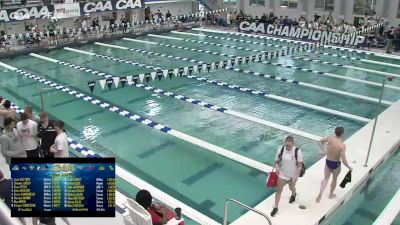 Replay: CAA Champs Prelims (AM) & Finals (PM) | Mar 2 @ 10 AM
Replay: CAA Champs Prelims (AM) & Finals (PM) | Mar 2 @ 10 AMMar 2, 2024
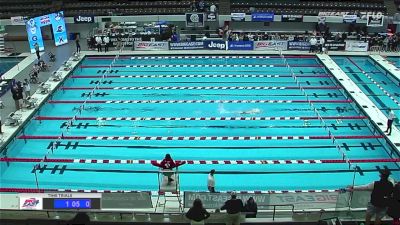 Replay: Big East Swimming Championship | Mar 2 @ 10 AM
Replay: Big East Swimming Championship | Mar 2 @ 10 AMMar 2, 2024
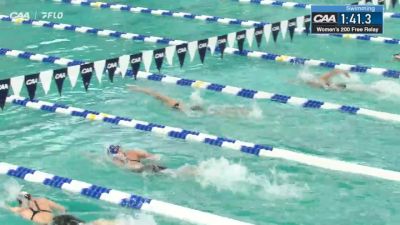 Replay: CAA Champs Prelims (AM) & Finals (PM) | Mar 1 @ 5 PM
Replay: CAA Champs Prelims (AM) & Finals (PM) | Mar 1 @ 5 PMMar 2, 2024